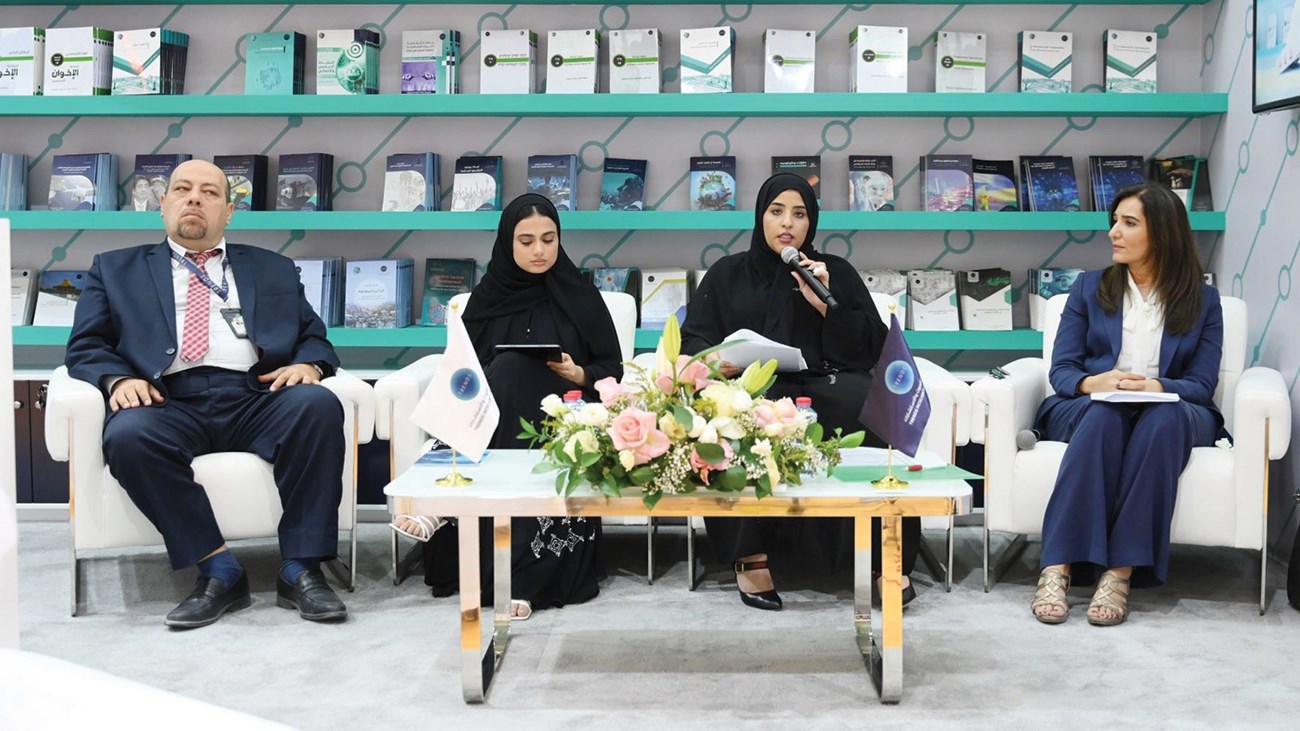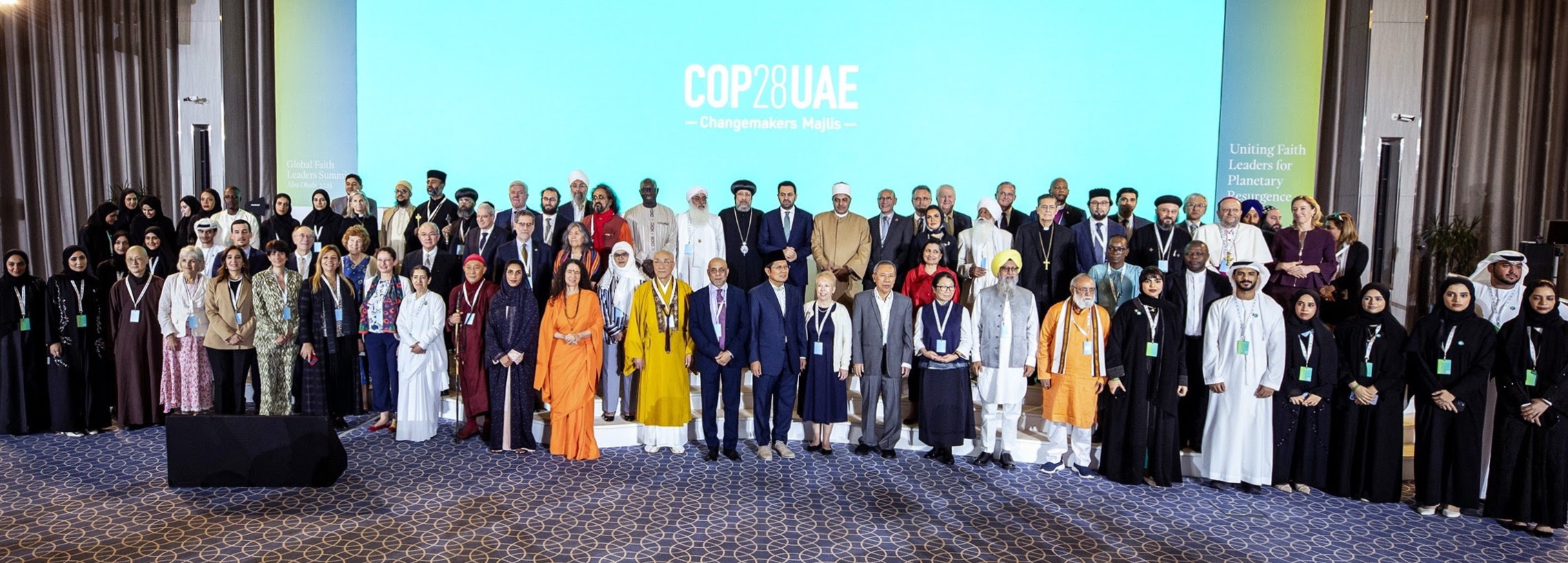- March 15, 2024
- New York, United States of America
Institutions and Gender Equality in the Arab Region
How do the themes of gender equality and harmonious coexistence find expression at the level of social, institutional, and grassroots realities specific to the Arab region?
This was among the topics addressed at an event organized by Arab members of the Bahá'í International Community delegation to the sixty-eighth session of the United Nations Commission on the Status of Women, held from March 11 to 22.
This event, held in Arabic under the title "Empowerment through Institutions: A Collective Approach to Gender Equality," featured speakers from the United Arab Emirates, the Kingdom of Bahrain, and the Republic of Tunisia. Drawing on insights from a range of diverse professional backgrounds, including academia, policy research, media, and social services, the participants in the panel discussion reflected the richness and diversity of the Arab region itself.
Approximately 85 participants from a variety of Arabic-speaking countries joined this event.
Dr. Roeia Thabet, representative of the Bahá'í Community in the United Arab Emirates and moderator of this event, stated that integrating gender equality principles into a consistent conceptual framework is essential to support effective grassroots action.
Dr. Thabet explained, "Organizing efforts around this framework will ensure the presence of fundamental laws, principles, and common elements among different lines of action. This allows us to promote goodness, well-being, and learning from different approaches without falling into blind imitation."
The speakers in the panel discussion addressed a variety of issues related to gender equality in the Arab region. Dr. Wajeeha Al-Bahrani, founder and vice president of the Bahrain Women's Association for Human Development, focused on the links between progress in gender equality and the advancement of all population segments.
She pointed to the particular benefit of the committees recently formed by the Government of the Kingdom of Bahrain, which set standards and policies to assist women and advance gender equality. Dr. Al-Bahrani stated, "We are all partners in humanity, and we are all partners in the progress of our societies. We must live together with ethics and human standards that create a world characterized by coexistence, peace, love, and diversity."
Many speakers emphasized the topic of translating gender equality principles into action through governmental institutions. In this regard, Dr. Najia Al-Kutbi, assistant professor at Mohamed bin Zayed University for Humanities, described the experience of the Gender Balance Council in the United Arab Emirates, established in 2015.
Dr. Al-Kutbi explained, "The specialization of this council, and what helped it achieve equality, is that it reviews existing legislation and policies to help advance women. It also develops new policies and legislation."
From a North African perspective, Dr. Mohamed Ben Moussa, representative of the Bahá'í Community in the Republic of Tunisia, noted that institutional reforms must be accompanied by broader societal transformations and be an integral part of them.
Dr. Ben Moussa continued, "We must think about how traditions, culture, and patterns of thinking are formed at the grassroots level. There are many noble values in society, but there are also many customs that diminish the status of women. We need to understand gender equality at the institutional, community, and individual levels alike. Unless gender equality is entrenched, neither men nor women will advance."
Ms. Aisha Khalfan Al-Rumaithi, director of research at Trends Research and Advisory in the United Arab Emirates, pointed to the importance of caring for the well-being of both women and men, and among each other.
Ms. Al-Rumaithi said, "We need to actively consider the needs of both women and men so that we can achieve consistency between the policies set for each of them, and whether institutions ... have the appropriate balance between their needs." The final speaker was Dr. Badi Jabri, president of the Bahá'í Social Association in Bahrain, a non-governmental religious organization, who emphasized the beneficial role that governmental institutions can play in creating conditions that promote progress in gender equality.
The final speaker was Dr. Badi Jaberi, president of the Bahá'í Social Association in Bahrain, a non-governmental religious organization, who emphasized the beneficial role that governmental institutions can play in creating conditions that promote progress in gender equality.
Dr. Jaberi said, "The intellectual and social enlightenment of governmental institutions throughout the Kingdom of Bahrain has created a highly nurturing and welcoming environment for the contributions of every individual in society. At this pivotal moment in human history, it is important to help cultures and communities around the world benefit from the active participation of women and girls in social spaces."
Open discussions among event participants touched on many additional topics related to gender equality in the Arab region, such as institutional responsibility, concepts of masculinity, and the education and upbringing of children. Many speakers also emphasized the prominent role that the family plays in shaping the concepts of both men and women.
Mamdouh Al-Rouhani from the Center for Social Prosperity Studies shared, "In hundreds of experiences around the world, the family is the primary space where the culture of equality begins to be promoted." He added, "The primary laboratory for empowering women, and the fundamental environment where ethical and human values are instilled and entrenched, is the family," noting that examples of progress in efforts to empower women and equal opportunities are particularly evident in the Kingdom of Saudi Arabia, the Kingdom of Bahrain, and the United Arab Emirates
This event was part of the larger participation of the Bahá'í International Community in this year's Commission on the Status of Women. The official statement submitted by the Bahá'í International Community to the commission is available in both Arabic and English.


